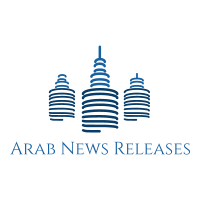WASHINGTON – U.S. International Development Finance Corporation (DFC) and FMO, the Dutch entrepreneurial development bank, today announced the DFC-MASSIF COVID-19 Response Co-Financing Facility. The $75 million facility seeks to bring liquidity to financial intermediaries to support micro-, small-, and medium-sized enterprises impacted by the COVID-19 crisis and promote new investment to support economic sustainability in developing countries with a particular focus on low income countries and underserved groups like women, youth, and entrepreneurs active in agriculture or rural areas.
“As the COVID-19 pandemic continues to adversely affect financial markets, especially businesses in developing countries owned by women, DFC is constantly looking for innovative partnerships like this to provide economic relief and development impact,” said DFC’s Vice President of Development Credit James Polan. “This co-financing facility combines DFC and FMO’s joint development focus, commitment to supporting women and other underserved populations, and financial expertise to provide essential liquidity to developing markets.”
“The partnership with DFC strengthens our ability to address the immediate COVID-19 recovery and long-term challenges the pandemic poses for our MASSIF clients. We take the fact that DFC is willing to build on our 50-year track record and experience in emerging markets as a big compliment,’’ said Jeroen Harteveld, portfolio manager MASSIF, the financial inclusion fund that FMO manages on behalf of the Dutch government.
COVID-19 has not only stressed global health systems, but service closures and stay-at-home orders in emerging markets have constrained liquidity and hindered business operations. The DFC-MASSIF COVID-19 Response Co-Financing Facility offers a creative and innovative solution. Working to the strengths of both institutions, the facility will provide support for financial intermediaries facing liquidity strains related to the COVID-19 crisis, unlocking financial support such as loans to businesses in low-income and fragile states.
The co-financing facility is the first of its kind for DFC, and builds upon FMO’s co-financing experience and expertise in reaching borrowers in developing markets. The facility will prioritize reaching women and other underserved communities, advancing DFC’s 2X Women’s Initiative with at least 50% of borrowers expected to be women entrepreneurs. It will also promote development impact through its focus on low income and lower-middle income countries, advancing DFC’s development strategy, the Roadmap for Impact.
Source: U.S. International Development Finance Corporation
